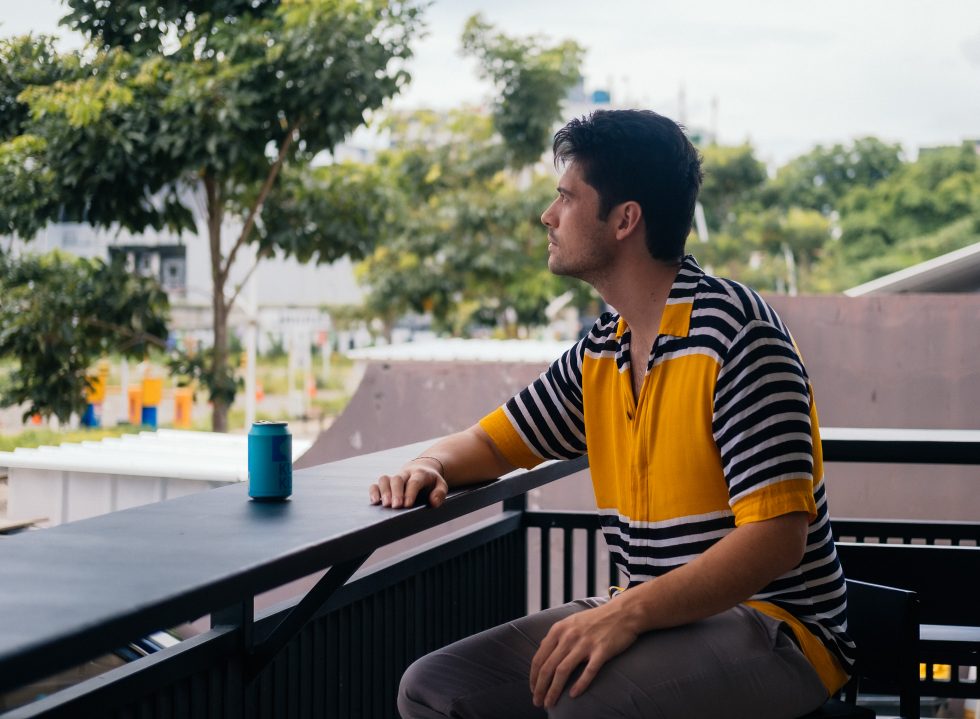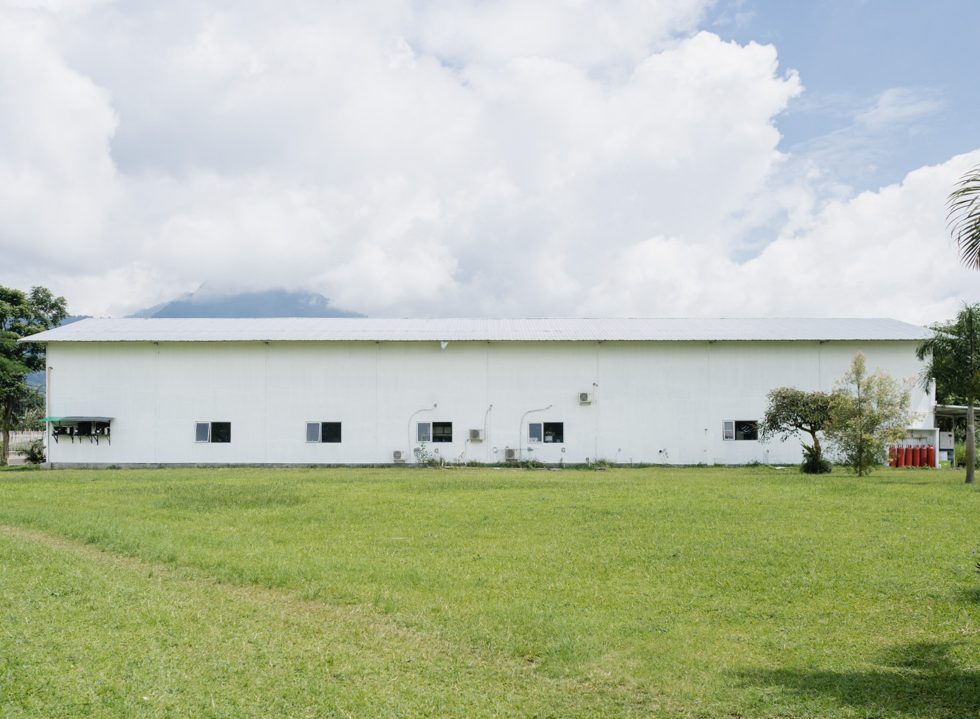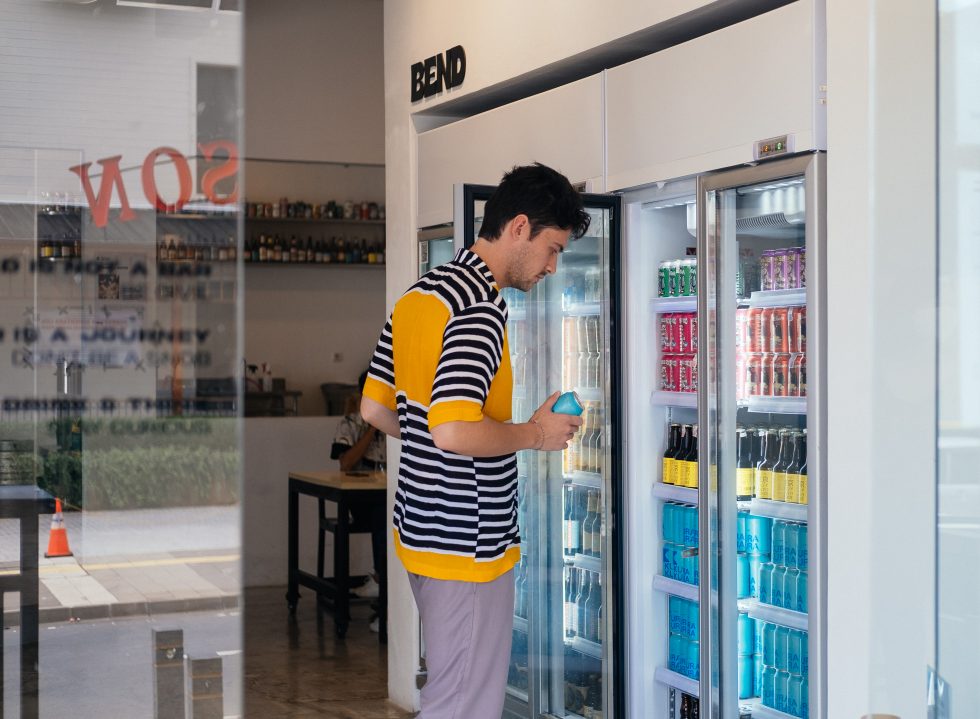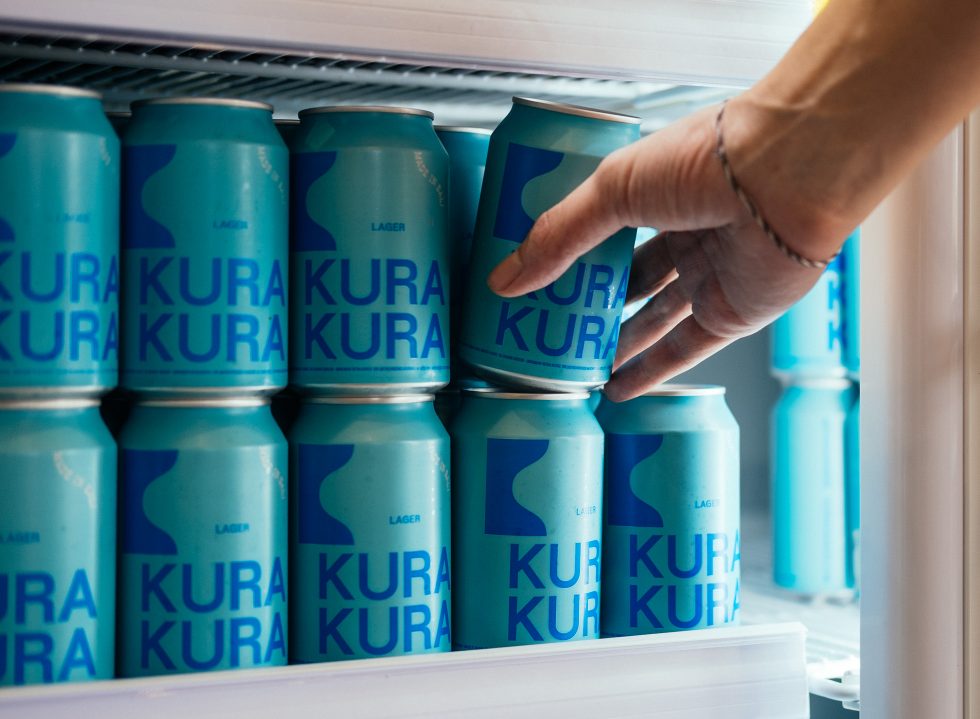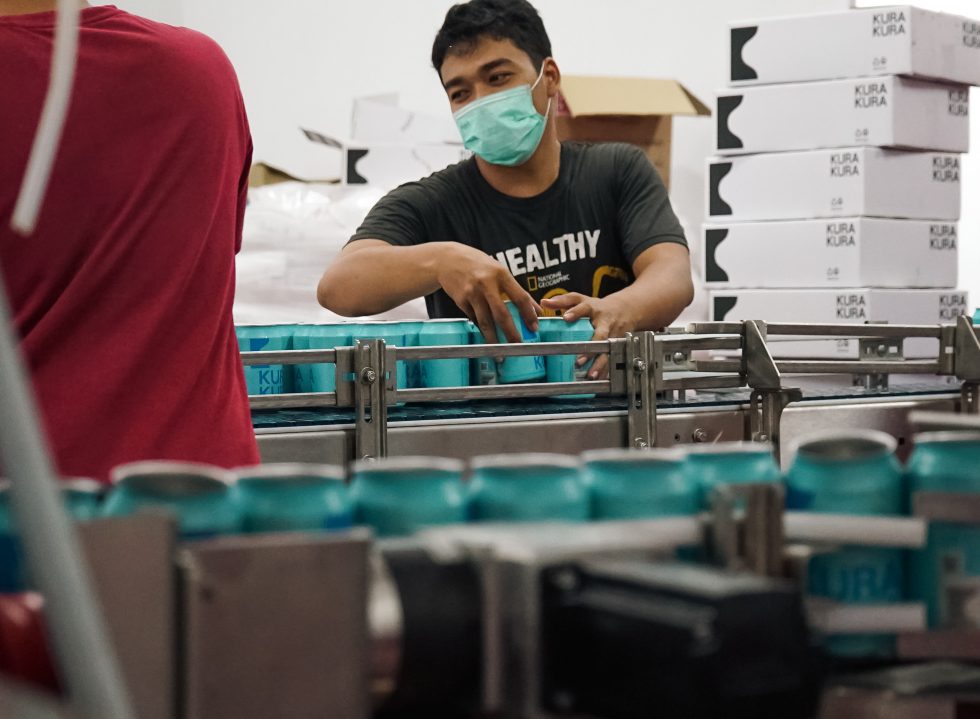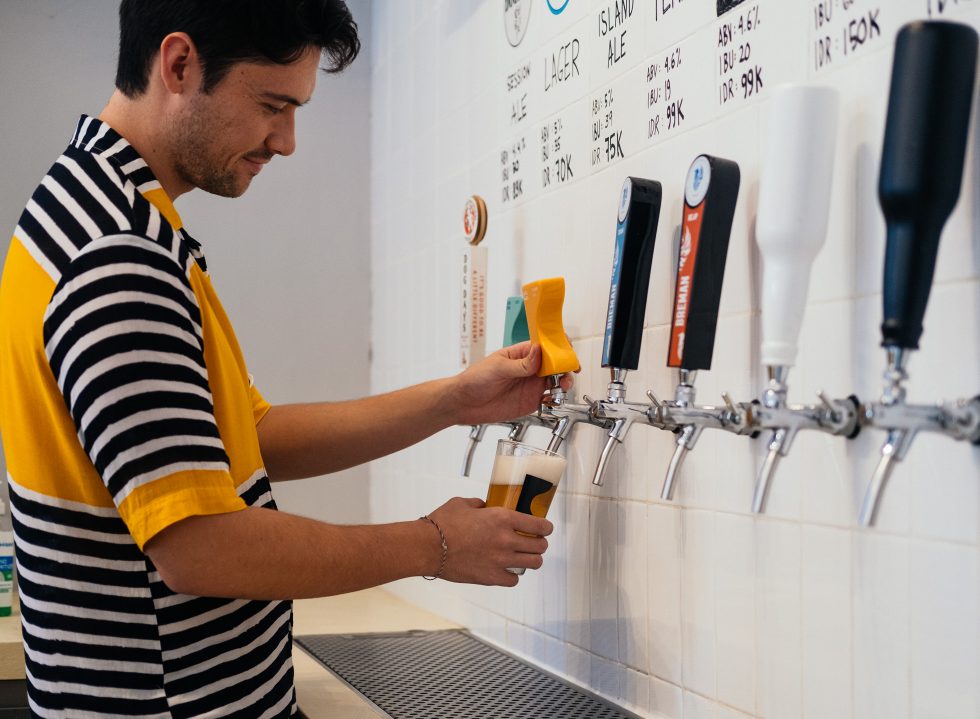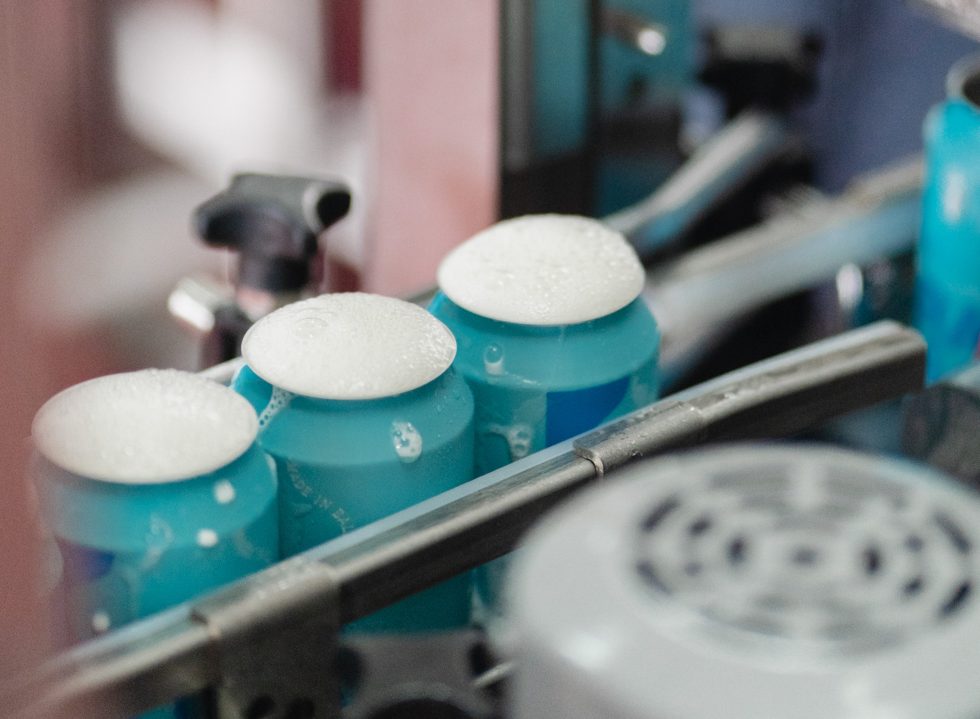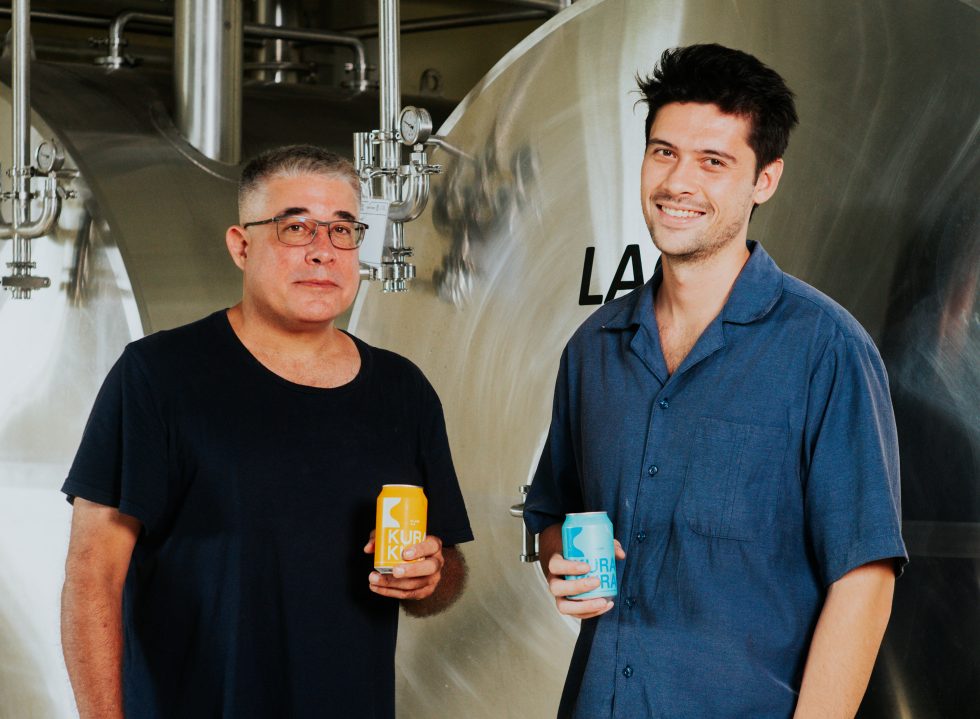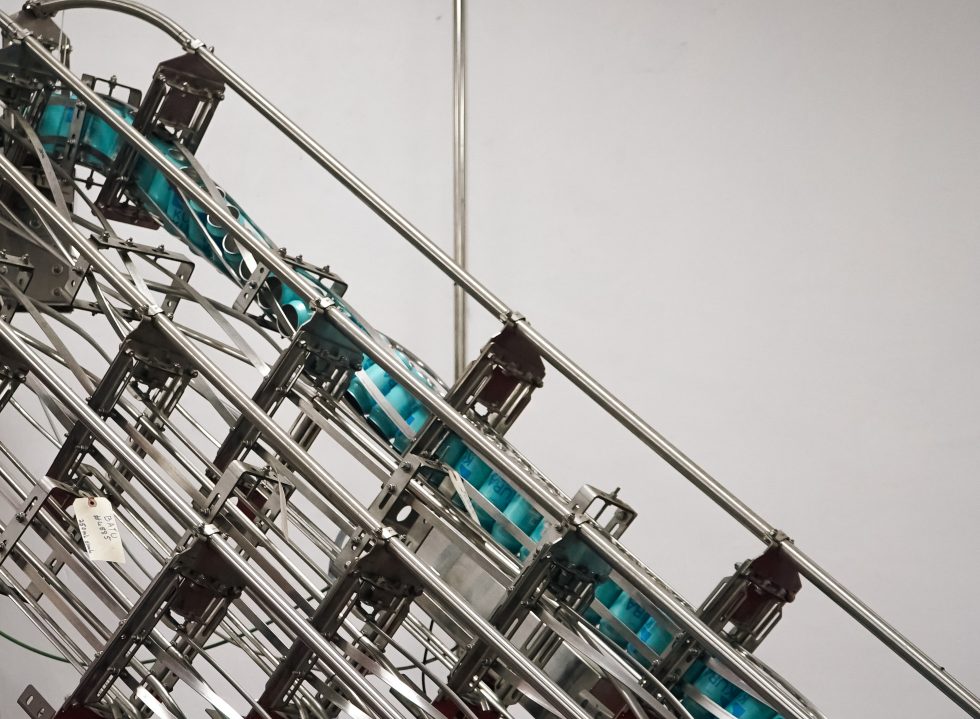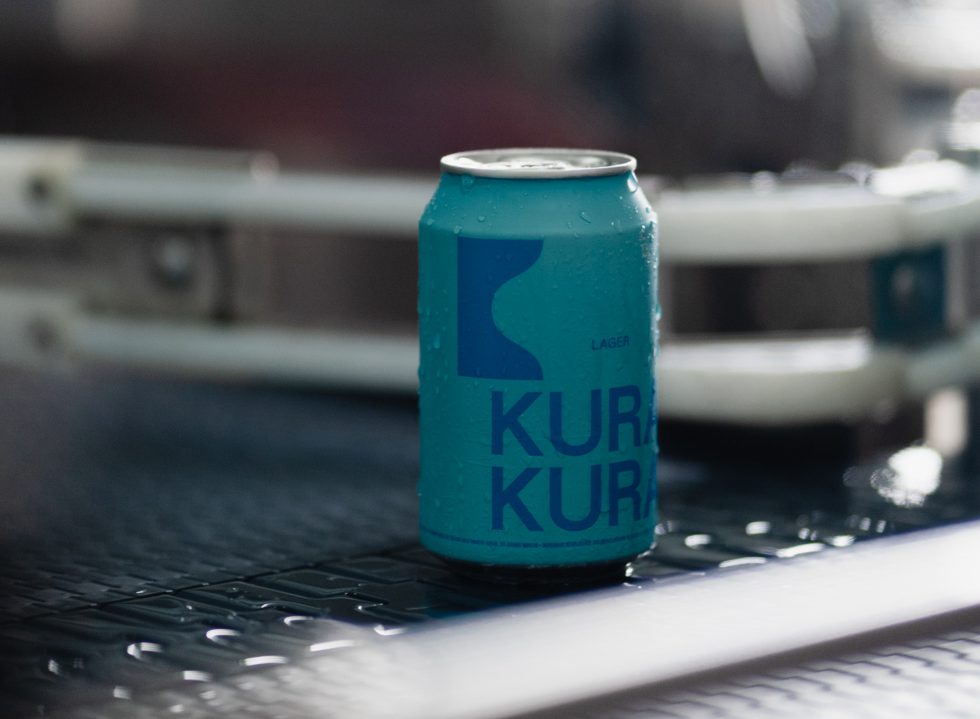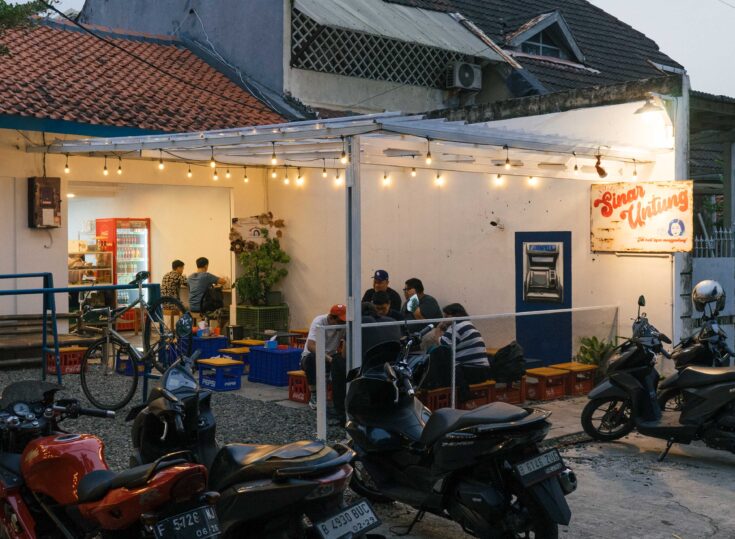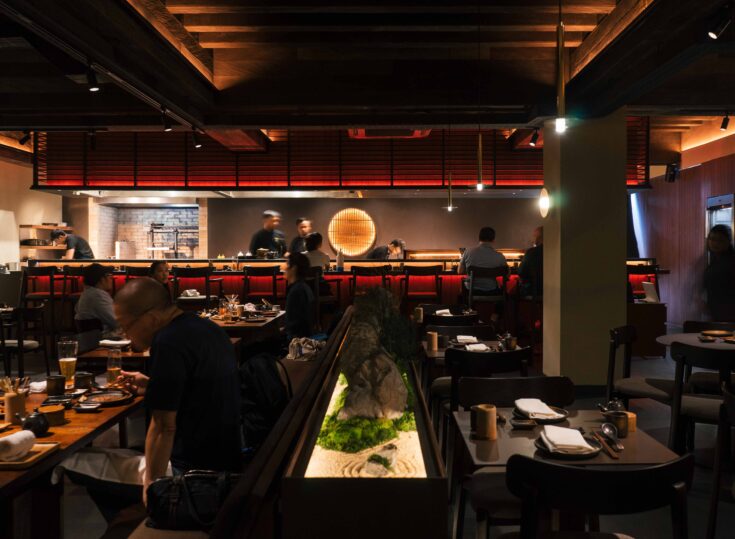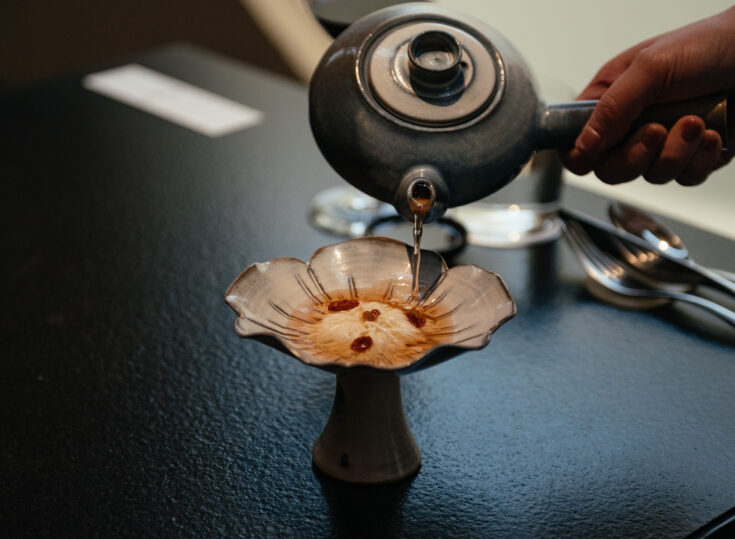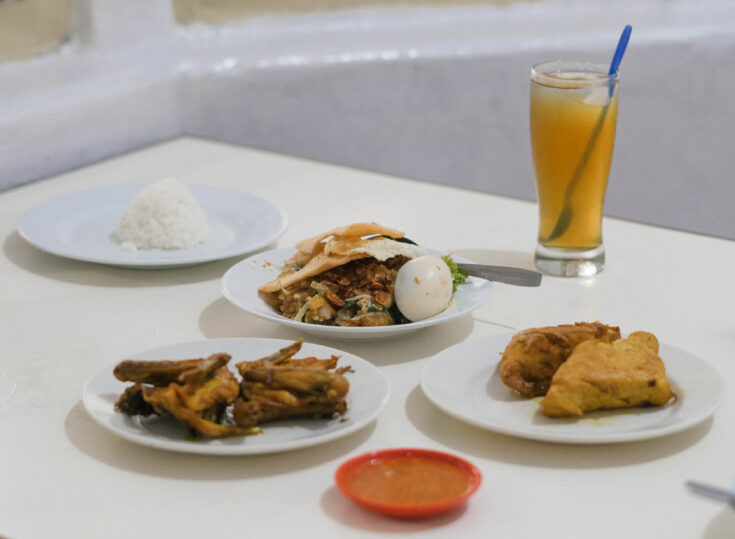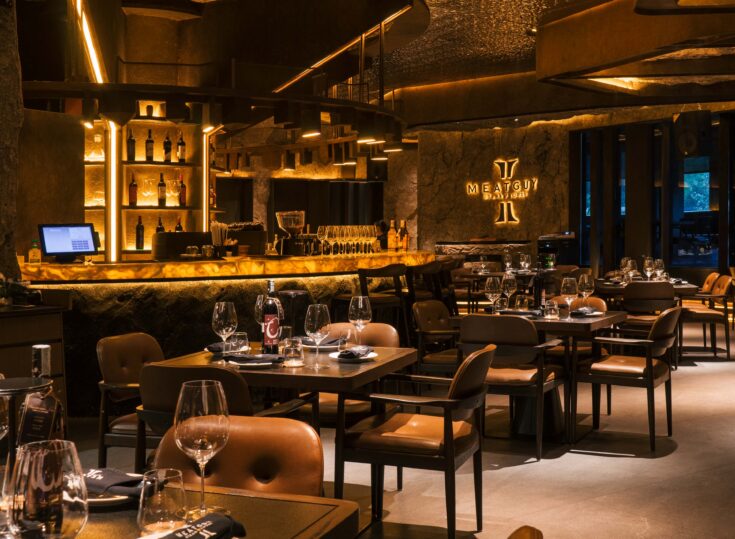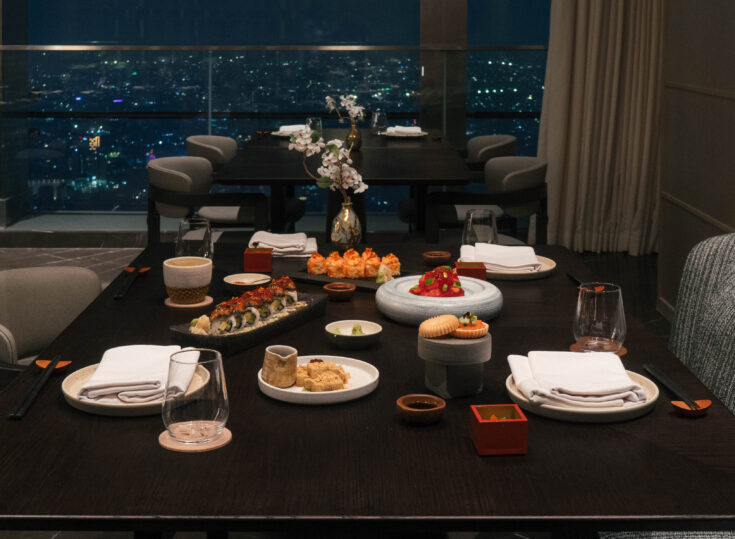Every 210 days, the Balinese celebrate the Hindu festival of Galungan, a 10-day holy celebration that marks the coming of ancestral spirits to earth and the triumph of Dharma over Adharma (virtue over evil). This year, the celebration fell on the second week of November, where locals would parade the streets with ornaments like bamboo poles and offerings, days before the big day arrives.
I met Putu Wiranatha, founder of Kura Kura Beer, over Zoom on Tuesday of the same week. Like any other Hindu locals in Bali, Putu was also preparing for the holy week; he told me he was going to the temple with his family, a tradition that’s been part of his days growing up on the island.
“I was born in Australia but I was only there for two months,” says 26-year-old Putu through the cramped camera screen. Wearing an airy patterned shirt that screams Bali weather-perfect, his voice sounded rested, emanating the impression of a genuinely nice dude who likes to be part of a conversation instead of being the subject. “My family is 100 per cent Bali-based. I grew up in Kuta, so I was very much surrounded by the environment of the neighbourhood at the time.”
A family tradition like Galungan is the kind of bond that ties Putu to Bali ever since he was young. His sense of place of the island is further shaped through day-to-day experiences, from attending Dyatmika bilingual school in Sanur (“They had like twenty kids in my class, and twelve to fifteen of them would have different overseas passports.”) to going to the beach every day with his Balinese father and Irish mother where they would eat nasi bungkus together (“Back then, Kuta was like the Canggu of today but simpler.”).
“Since my dad is Balinese, I got to go to a lot of cultural celebrations, so I’m very much in touch with the local culture,” reveals Putu. “Bali is a melting pot. I always thought it was pretty cool to be exposed to a variety of cultures from such a young age.”
“I grew up in Kuta, so I was very much surrounded by the environment of the neighbourhood at the time.”
He recalled an island folklore that his grandmother would always tell him growing up: that Bali sits on the back of a giant turtle. The turtle itself is symbolic of the spirit of the island, and it has to hold its balance so the island won’t sink; it’s the kind of bedtime story one would listen to for the sake of falling asleep, but for Putu, the tale found its way back to the young entrepreneur as the inspiration for his craft beer moniker, Kura Kura (turtle in English).
“I knew that I wanted an Indonesian name for the brand because, at the end of the day, we’re in Indonesia and our mission is to inform the locals of craft beer and the experience of drinking it. That particular story always resonated with me and I wanted [Kura Kura] to have a special connection to the island.”
Before Putu started his own brewery, he had spent much of his formative years in Melbourne, up until he graduated university with a civil engineering degree. It was during this time that Putu developed an acquired taste and interest for beers; he pointed out that his fondest memories were always accompanied with a cold one in hand, and during his travels abroad, he would come across different beer brands and the curious kid in him would ask the waiters specifics about them. “I think that’s when I started getting curious about crafting a beer.”
Back in Australia, he saw how craft beer grew from being a niched part of the industry into something mainstream. Noted brands like Little Creatures were able to move the needle in spotlighting craft beers, that by the time Putu was in his final year at university, he noticed more and more people coming out with their own brands.
“If you go to a cool restaurant in Melbourne, they would only serve craft beer instead of big, macro ones. It’s a pretty cool industry; to come from nothing and take over big beer companies that have been in the scene for so long,” Putu highlights. “I knew that it was something I wanted to be part of. At the time, [craft beer] also has yet to take off in Indonesia.”
With this in mind, Putu started laying the groundwork for Kura Kura in 2019. He visited cities in Australia and around Southeast Asia and delved into the local market for insights on craft beer. Together with his father, a successful businessman himself, the two built a brewery on a 4,5-hectare plot in the farmland region of Plaga, a one-hour drive from Denpasar, alongside a growing team of established brewers.
With a simple yet grand vision of changing Bali’s beer scene, Kura Kura officially launched in June last year. One year on, it has been doing just that, with two signature beers under their belt, followed by a distinct recognition for the Chairman Selection at this year’s Asia Beer Championship.
Back in Australia, he saw how craft beer grew from being a niched part of the industry into something mainstream.
There’s the blue-canned Lager, a more classic malt-driven pilsner, and yellow-canned Island Ale, a light and crisp pale ale with a fruity aroma, both packaged in a colour palette reflective of Bali’s visual cues. “We’re preparing for the launch of our new beer soon, which is exciting. We’re also working on a few other beer-related activities and it’s been great,” shares Putu of Kura Kura’s latest ventures. “The brand’s growing well in Bali. It’s also received well in Jakarta and hopefully, we’ll be exporting soon. I’m so excited.”
There’s a level of pride distinct to Kura Kura for having their beers freshly brewed on the island, in a brewery owned and led by Bali locals. From production to branding, it’s an individuality that Putu always wanted for Kura Kura, especially knowing that more and more people want to feel connected to the brand they are consuming.
Hence the wholesome approach of linking the brand to its island provenance beyond the canned brews. A stroll down their Instagram page and you can spot highlights on life in the brewery, to a showcase of talented island artisans, like painter Naomi Samara and kendang artist I Putu Danika of their work. Kura Kura’s collaboration with local foundation Sungai Watch, whose founder Gary Benchegib happens to be Putu’s schoolmate, also hones in on the brand’s commitment to recycling and keeping Bali’s waterways clean.
“Nowadays, people don’t want to have a generic product that’s off the shelf anymore since it doesn’t have any meaning to them,” Putu muses. “What’s special about craft beer is the personal element of it. Stories behind the product really enhance the consumption experience—it’s the idea of having something to talk about while drinking the beer.”
The long-held notion that imported products are better? That’s also a sentiment that Putu wants to scrap. “Unfortunately, it’s a belief that some people here still hold. But that’s part of our brand’s mission, to switch the narrative and express that, hey, we can also make high-quality products locally.”
Throughout our conversation, Putu made it clear that he was not a fan of Indonesia’s strict regulations on alcohol. But he didn’t get into details when asked about existing concerns that surround it, like the tricky licensing or the overall stigma of the beverage within the local community. Maybe he was being careful about cultural sentiments that underlie them, or maybe he wanted to deep dive more to get the complete picture of the situation.
There’s a level of pride distinct to Kura Kura for having their beers freshly brewed on the island, in a brewery owned and led by Bali locals.
Even so, he observed that “we exist in a culture where drinking isn’t very developed in general. I find that drinking happens either in a more upscale restaurant or in the kampung area where you’d have to be more reserved with your alcohol consumption.”
The hope then swings to the younger generation of Indonesians who, in Putu’s opinion, are doing exciting things to move forward the industry, from independent media and establishments that are popping up, to the craft beer culture that is slowly taking on a life of its own here.
“All these are really exciting. I hope that the younger generation would start to embrace drinking culture in ways that would remove [outdated] stigmas around it. That’s what I hope and that’s what I think is going to happen in Indonesia. We want to be part of that. We want to be the brand that encourages people to drink better quality products.”
Building a young brand that strives for big things is a great undertaking that Putu is ready to take on. But there’s a sense that he never lets the pressure consume him and would rather enjoy the process, even when he admitted that he’s all about putting in the work on a daily basis.
He laughed when I pressed him about what he does in his spare time. “There’s nothing outside work.” Then, he remembered that Bali is a place that you can never get enough of, a feeling that pretty much inspired and breathed life to Kura Kura.
“When I have time off, I like to travel to different parts of Bali. A couple of weekends ago, my girlfriend and I went to Pemuteran, which is a small fishing village on the northern coast of the island. We also went to the National Park, which was so beautiful,” he ends with a smile. “This weekend, we’re going to the mountains! As an island, Bali just has so much to offer.”
